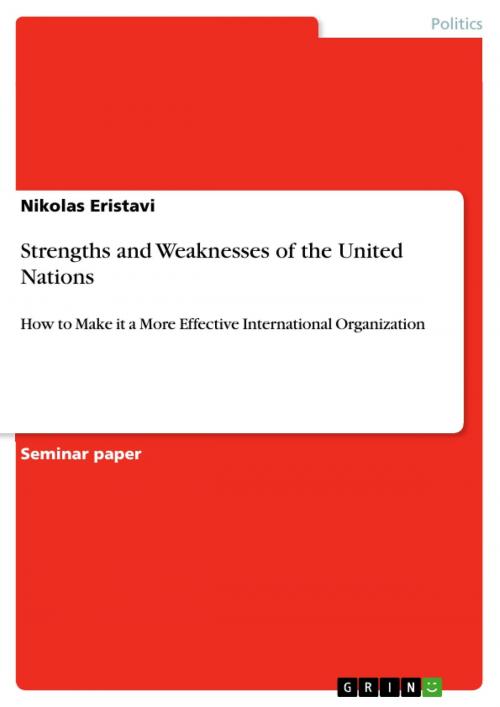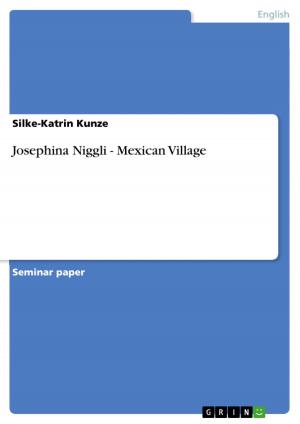Strengths and Weaknesses of the United Nations
How to Make it a More Effective International Organization
Nonfiction, Social & Cultural Studies, Political Science, International, International Relations| Author: | Nikolas Eristavi | ISBN: | 9783640948147 |
| Publisher: | GRIN Publishing | Publication: | July 1, 2011 |
| Imprint: | GRIN Publishing | Language: | English |
| Author: | Nikolas Eristavi |
| ISBN: | 9783640948147 |
| Publisher: | GRIN Publishing |
| Publication: | July 1, 2011 |
| Imprint: | GRIN Publishing |
| Language: | English |
Seminar paper from the year 2010 in the subject Politics - International Politics - Topic: International Organisations, grade: 90, LMU Munich, course: Introduction to International Politics, language: English, abstract: The now dissolved League of Nations was replaced when the United Nations Charter came into effect on October 24 in 1945. Five permanent member states signed onto the Security Council: China, France, the Soviet Union, the United Kingdom and the United States. Their collective influence empowered the organization and gave it the legitimacy that the League of Nations lacked. The UN flowered thereafter as it became a catalyst for change in response to humanitarian crises and the propensity of war. Social services developed around the world thanks to the organization, and conflict resolution became a key facet of the intergovernmental agency. The United Nations in its current state is subject to much scrutiny. Despite its strength in its work in protecting and serving the needs of humanity and functioning as mediatory power for international conflict resolution, the UN does falter as a 'world government' as it heralds little hegemony and is ineffective at being a progressive power.
Seminar paper from the year 2010 in the subject Politics - International Politics - Topic: International Organisations, grade: 90, LMU Munich, course: Introduction to International Politics, language: English, abstract: The now dissolved League of Nations was replaced when the United Nations Charter came into effect on October 24 in 1945. Five permanent member states signed onto the Security Council: China, France, the Soviet Union, the United Kingdom and the United States. Their collective influence empowered the organization and gave it the legitimacy that the League of Nations lacked. The UN flowered thereafter as it became a catalyst for change in response to humanitarian crises and the propensity of war. Social services developed around the world thanks to the organization, and conflict resolution became a key facet of the intergovernmental agency. The United Nations in its current state is subject to much scrutiny. Despite its strength in its work in protecting and serving the needs of humanity and functioning as mediatory power for international conflict resolution, the UN does falter as a 'world government' as it heralds little hegemony and is ineffective at being a progressive power.















